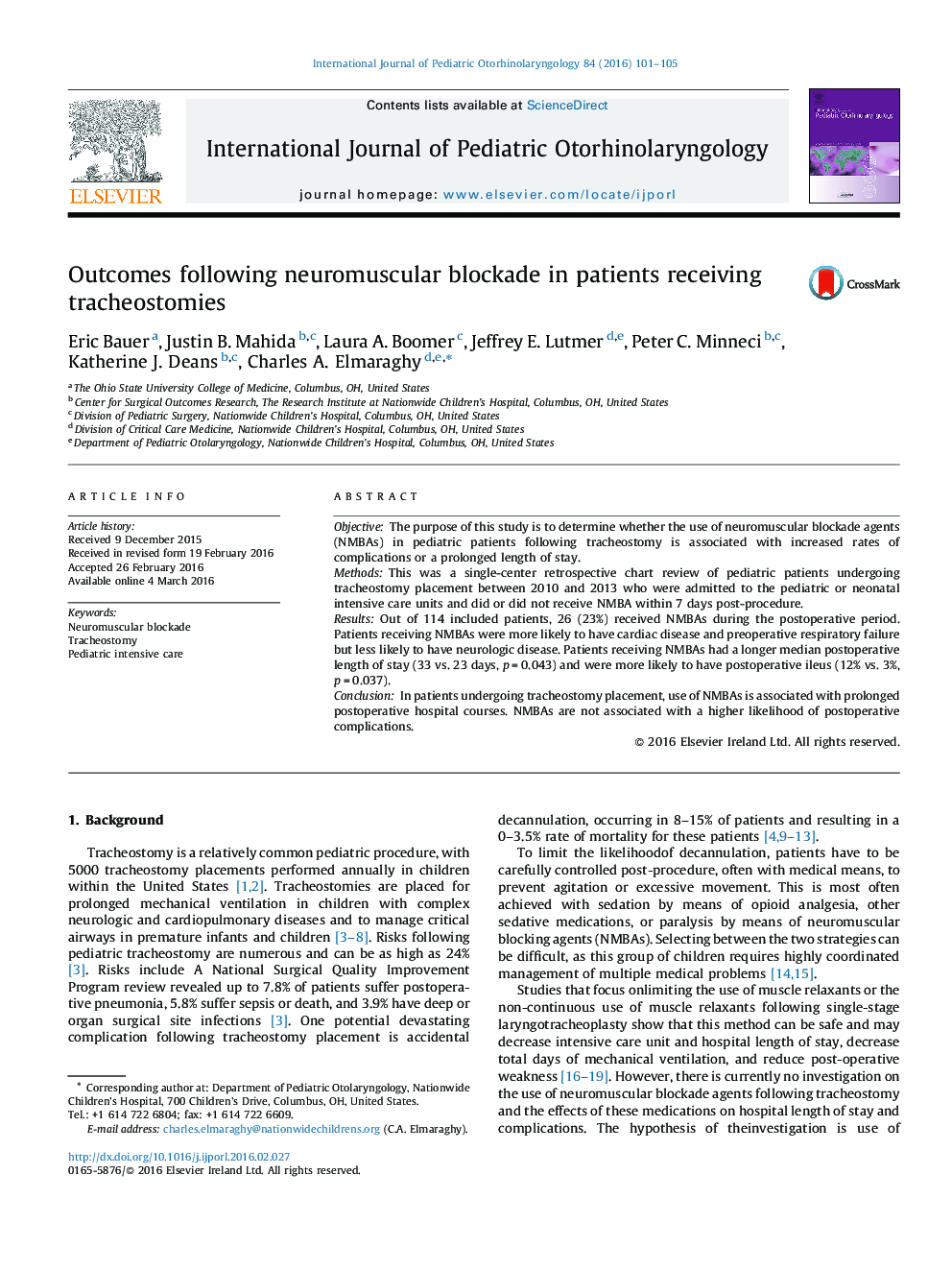| Article ID | Journal | Published Year | Pages | File Type |
|---|---|---|---|---|
| 4111495 | International Journal of Pediatric Otorhinolaryngology | 2016 | 5 Pages |
ObjectiveThe purpose of this study is to determine whether the use of neuromuscular blockade agents (NMBAs) in pediatric patients following tracheostomy is associated with increased rates of complications or a prolonged length of stay.MethodsThis was a single-center retrospective chart review of pediatric patients undergoing tracheostomy placement between 2010 and 2013 who were admitted to the pediatric or neonatal intensive care units and did or did not receive NMBA within 7 days post-procedure.ResultsOut of 114 included patients, 26 (23%) received NMBAs during the postoperative period. Patients receiving NMBAs were more likely to have cardiac disease and preoperative respiratory failure but less likely to have neurologic disease. Patients receiving NMBAs had a longer median postoperative length of stay (33 vs. 23 days, p = 0.043) and were more likely to have postoperative ileus (12% vs. 3%, p = 0.037).ConclusionIn patients undergoing tracheostomy placement, use of NMBAs is associated with prolonged postoperative hospital courses. NMBAs are not associated with a higher likelihood of postoperative complications.
